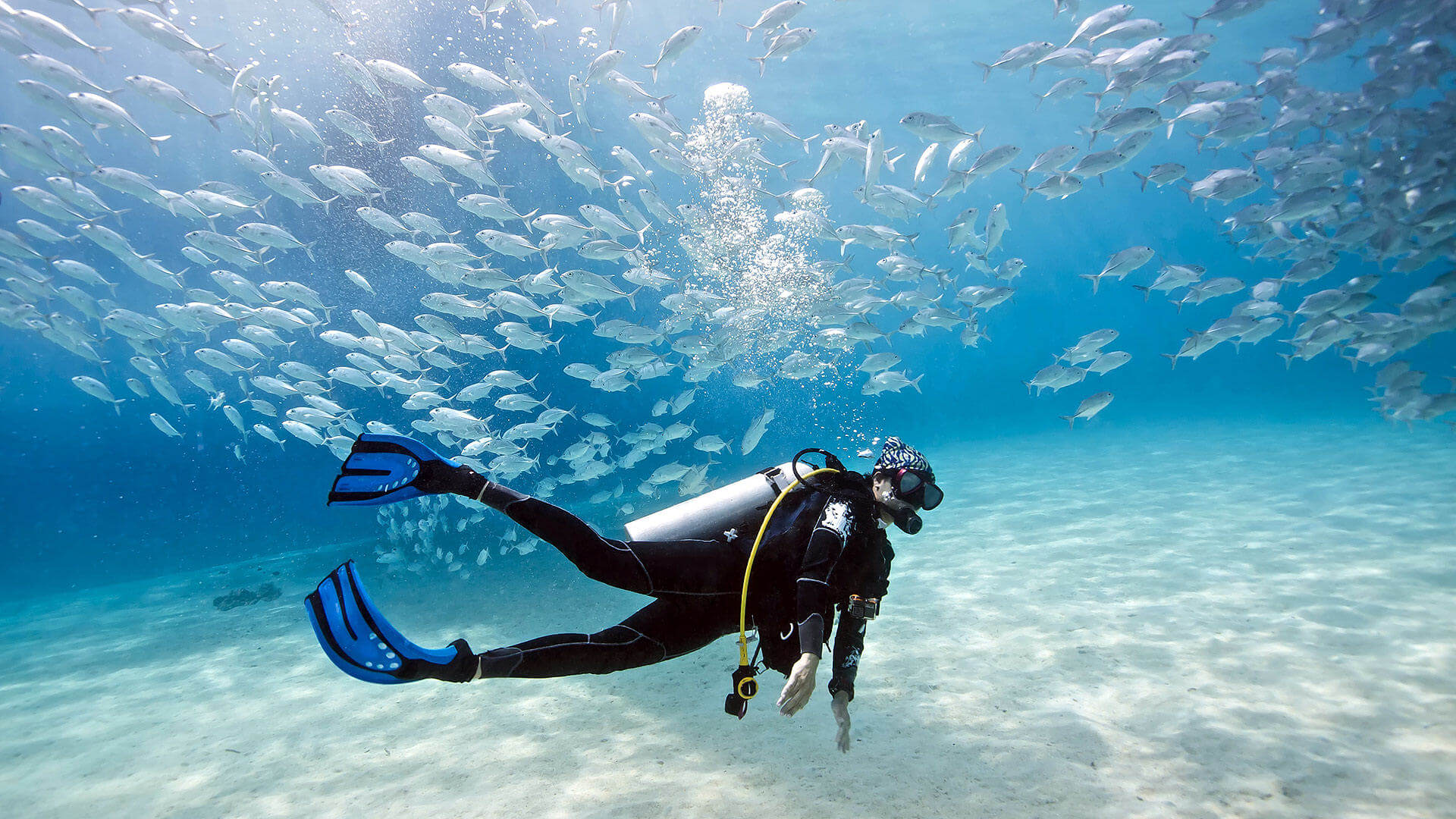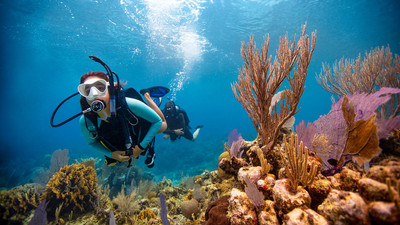How to become a better diver - Top 5 Tips for New Open Water Students
Posted by Dive Pro: Will Taylor on on Mar 21st 2023
Here at Eco Dive Center, we certify hundreds of new open water divers every month and a question we get a lot from our previous students is “what kind of tips would you give a new diver?”. The short answer is DIVE! The best way to get better at diving is by going out. Grab some gear, hop on one of our boats and enjoy the open ocean while strengthening your fundamental skills. The long answer is broken up into five tips that I would give to a brand new open water diver.
- Get comfortable with your gear: Before entering the water, take the time to become familiar with your scuba gear. Practice putting it on and taking it off, adjusting the straps, and inflating and deflating your BCD. Developing a deeper understanding of your gear will lead to you feeling comfortable and confident in your equipment. This will create a healthy state of mind which will help you relax underwater. If you have any questions about gear or how to get started on your setup let us know.

- Always dive with a buddy: Never dive alone. Practice your buddy checks and stay close to each other throughout the dive. Make sure to communicate your dive plan, air supply, and any issues or concerns you may have. Once you are finished with the dive, have a debriefing and make plans to go out again! Your local Dive Center is the best place to find new dive buddies. Hop onto trips or courses to meet and mingle with your local scuba community.
- Maintain neutral buoyancy: This is going to be the most difficult for most people and the only way to get better at buoyancy control is by diving. Practice maintaining neutral buoyancy by controlling your breathing and adjusting your BCD. This will help you conserve air and avoid damaging the environment or yourself by accidentally bumping into coral or rocks. Good buoyancy control is essential for safe and enjoyable diving. Make sure to practice your buoyancy control skills regularly, both in the pool and in open water. This will help you avoid accidentally, or using up your air supply too quickly.

- Pay attention to your surroundings: Take the time to observe the marine life around you, but also be aware of your surroundings. Keep an eye on your buddy, your air supply, your depth, and your time. Always have a plan for how long you will stay underwater and how deep you will go.
- Keep a slow and steady pace: Scuba diving is not a race. Take your time and move slowly and steadily underwater. This doesn't only apply to your physical body movement but also your breathing. Practice yoga breathing and learn to take breaths with your diaphragm rather than with your chest. Slow long breaths will allow for better gas conservation and make you a better diver. These simple skills will help you conserve energy and air, and also give you a chance to see more marine life.

